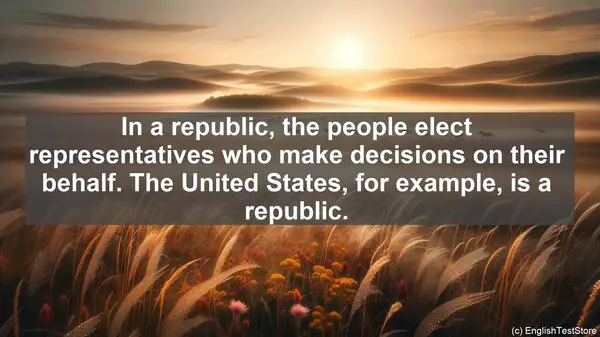Introduction
Welcome to our lesson on the top 10 commonly confused words in political anthropology. As students of this subject, it’s crucial to have a clear understanding of these terms. So, let’s dive right in!
1. State vs. Nation
The terms ‘state’ and ‘nation’ are often used interchangeably, but they have distinct meanings. A state refers to a political entity with defined borders, while a nation is a group of people who share a common culture, language, or history. For example, the United States is a state, but it consists of various nations like the Native American nations or the African American community.

2. Power vs. Authority
Power and authority are related but not the same. Power is the ability to influence or control others, while authority is the legitimate right to exercise power. In a political system, a leader may have power, but if it’s not backed by authority, their decisions may not be accepted.
3. Hegemony vs. Domination
Hegemony and domination both involve one group exerting control over others, but they differ in approach. Hegemony is a more subtle form of control, where the dominant group’s ideas, values, and beliefs are accepted by the subordinate group. Domination, on the other hand, involves direct coercion or force.
4. Globalization vs. Localization
Globalization refers to the increasing interconnectedness and interdependence of countries and cultures. It’s often associated with the spread of ideas, goods, and technologies. Localization, on the other hand, emphasizes the importance of local cultures, traditions, and identities. It’s a response to the homogenizing effects of globalization.
5. Colonialism vs. Imperialism
Colonialism and imperialism both involve one country exerting control over another, but they differ in scope. Colonialism typically involves the settlement of people from the colonizing country in the colonized territory. Imperialism, on the other hand, can take various forms, including economic, political, or cultural domination, without necessarily involving large-scale settlement.
6. Revolution vs. Rebellion
Both revolution and rebellion involve challenging the existing political order, but they differ in scale and goals. A revolution is a more profound and transformative change in the system, often resulting in a new government or social order. A rebellion, on the other hand, is a more localized and temporary uprising against authority.
7. Democracy vs. Republic
While both democracy and republic refer to forms of government where power rests with the people, they have slight differences. In a democracy, decisions are made directly by the people, often through voting. In a republic, the people elect representatives who make decisions on their behalf. The United States, for example, is a republic.
8. Bureaucracy vs. Meritocracy
Bureaucracy and meritocracy are two different principles of organizing a system. Bureaucracy emphasizes rules, procedures, and hierarchy. It’s often associated with government institutions. Meritocracy, on the other hand, is a system where positions are filled based on merit or ability. It’s often seen as a more equitable approach.
9. Anarchy vs. Chaos
Anarchy is often misunderstood as chaos or lawlessness. In political theory, anarchy refers to a system without a centralized government. It doesn’t necessarily mean chaos. Anarchists believe in self-governance and voluntary cooperation. They argue that hierarchical systems can lead to oppression and injustice.

10. Liberalism vs. Conservatism
Liberalism and conservatism are two major political ideologies. Liberalism emphasizes individual rights, equality, and the role of government in ensuring social welfare. Conservatism, on the other hand, emphasizes tradition, limited government intervention, and individual responsibility. These ideologies often shape policy debates and political discourse.
